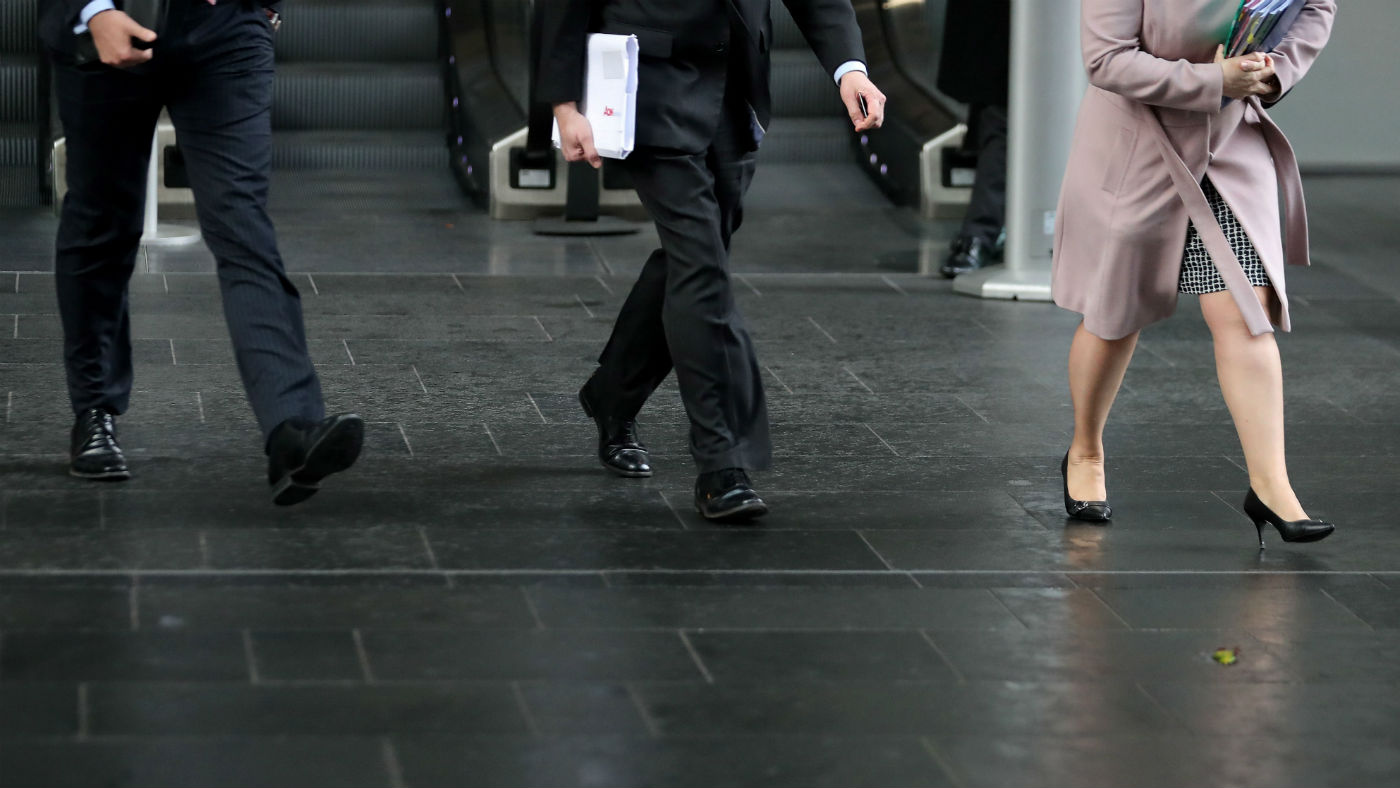Deadline passes for publication of gender pay figures
Large firms had until midnight to publish gender pay gap figures, and now face action from equalities commission

A free daily email with the biggest news stories of the day – and the best features from TheWeek.com
You are now subscribed
Your newsletter sign-up was successful
The equalities commission has vowed to take strong action against any UK-based firm who missed last night’s deadline to publish their gender pay figures.
Under new laws brought in last year, companies which employ more than 250 people in the UK are required to publish details of any difference between the salary and bonus of all male employees and all female employees on a mean and median hourly basis.
As of yesterday evening, the BBC put the number of firms who had failed to comply in the “hundreds”, although Bloomberg claims “over half of the 11,000 employers required to submit their data have done so”.
The Week
Escape your echo chamber. Get the facts behind the news, plus analysis from multiple perspectives.

Sign up for The Week's Free Newsletters
From our morning news briefing to a weekly Good News Newsletter, get the best of The Week delivered directly to your inbox.
From our morning news briefing to a weekly Good News Newsletter, get the best of The Week delivered directly to your inbox.
The Equality and Human Rights Commission (EHRC), backed up by comments from the Minister for Women Victoria Atkins, has said it would take enforcement action against all firms that missed the deadline.
“At its debut last year, the new reporting system unleashed a wave of embarrassing information, highlighting that women are often under-represented in higher-paying roles and prompting pledges from many leading firms to improve the situation,” says Bloomberg.
“Even so, they point out that meaningful change takes time and that little can be concluded from just two years of data,” it adds.
Worryingly, data from those firms that did submit on time suggest the imbalance between what their female workers earn on average and what male staff do has not improved over the past twelve months.
A free daily email with the biggest news stories of the day – and the best features from TheWeek.com
Analysis by the BBC found the median pay gap among companies that have so far reported is 9.7%, flat against last year.
Big firms with the largest gaps include Easyjet (47.9%), Lloyds Bank (41.7%) and British Gas (37.5%), BBC analysis found.
“The median pay gap is not the same as paying women less than men to do the same work, which is illegal in the UK,” says the BBC “but using the median pay measure is helpful in understanding the number of women in companies who hold senior roles”.
According to research from the Institute for Fiscal Studies published in The Times, women are more likely to work in less productive and lower-paid industries, “which partly explains why they earn less than men”.
Focusing on the overall picture nationwide, the think tank found women on average are paid nearly 20% less per hour than men, could be explained by the higher proportion of women working in low-paid industries, such as retail and hospitality.
It found that women were about a third less likely to work for one of the top fifth most productive companies “because more productive firms pay their workers more on average, the gender pay gap in firm productivity is likely to contribute to the overall gender pay gap,” the IFS said.
Figures released for the public sector paint a similar story. Almost nine in 10 (88.5%) public sector organisations reported a median pay gap in favour of men, with more than a third paying men 20% more than women.
Initial analysis of the public sector reports filed last week found the gender pay gap has increased slightly from 14% to a 14.1% gap in the past year, “though it is still below the national average of 17.9% across both the public and private sectors”, notes HuffPost UK.
Among the worst offenders were Wigston Academies Trust, which runs two schools in Leicestershire, where women were paid 69% less than men, Loughborough University with a 36% gender pay gap and Leicestershire police (31.5%).
Overall, figures showed “the public sector has failed to narrow its gender pay gap this year, with women still paid an average of 86p for every pound paid to men”, says The Guardian.
-
 What to know before filing your own taxes for the first time
What to know before filing your own taxes for the first timethe explainer Tackle this financial milestone with confidence
-
 The biggest box office flops of the 21st century
The biggest box office flops of the 21st centuryin depth Unnecessary remakes and turgid, expensive CGI-fests highlight this list of these most notorious box-office losers
-
 What are the best investments for beginners?
What are the best investments for beginners?The Explainer Stocks and ETFs and bonds, oh my
-
 The pros and cons of a four-day working week
The pros and cons of a four-day working weekPros and Cons Think-tank says shift in working patterns could help alleviate the cost-of-living crisis
-
 Labour shortages: the ‘most urgent problem’ facing the UK economy right now
Labour shortages: the ‘most urgent problem’ facing the UK economy right nowSpeed Read Britain is currently in the grip of an ‘employment crisis’
-
 Will the energy war hurt Europe more than Russia?
Will the energy war hurt Europe more than Russia?Speed Read European Commission proposes a total ban on Russian oil
-
 Will Elon Musk manage to take over Twitter?
Will Elon Musk manage to take over Twitter?Speed Read The world’s richest man has launched a hostile takeover bid worth $43bn
-
 Shoppers urged not to buy into dodgy Black Friday deals
Shoppers urged not to buy into dodgy Black Friday dealsSpeed Read Consumer watchdog says better prices can be had on most of the so-called bargain offers
-
 Ryanair: readying for departure from London
Ryanair: readying for departure from LondonSpeed Read Plans to delist Ryanair from the London Stock Exchange could spell ‘another blow’ to the ‘dwindling’ London market
-
 Out of fashion: Asos ‘curse’ has struck again
Out of fashion: Asos ‘curse’ has struck againSpeed Read Share price tumbles following the departure of CEO Nick Beighton
-
 Universal Music’s blockbuster listing: don’t stop me now…
Universal Music’s blockbuster listing: don’t stop me now…Speed Read Investors are betting heavily that the ‘boom in music streaming’, which has transformed Universal’s fortunes, ‘still has a long way to go’